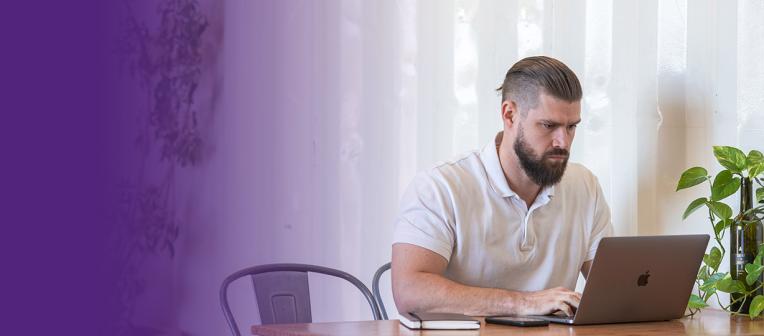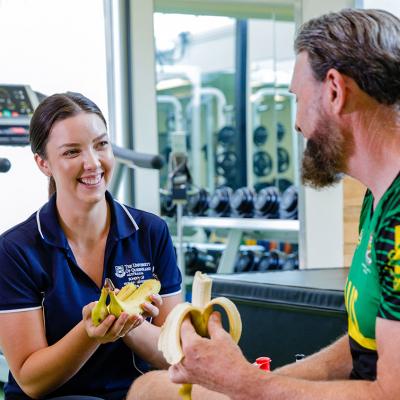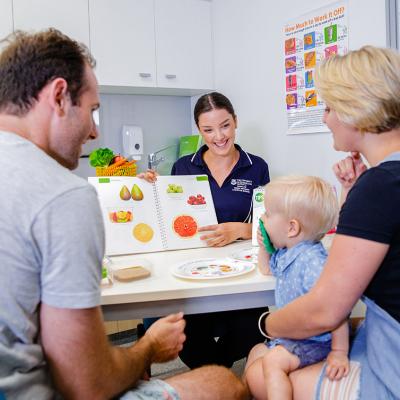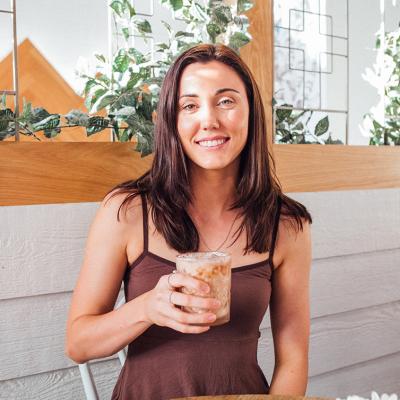Jonathan Steedman, Master of Dietetics Studies, is helping people become the healthiest versions of themselves – a task that’s tougher than ever in the digital era.
Social media and digital technology have forever changed how we live. But is it a change for the better or worse?
Well, it’s a bit of both, according to UQ graduate and accredited practising dietitian Jonathan Steedman from Bite Me Nutrition. Technological advances present new and unique ways to access health info and inspiration, but they also come with inherent problems and potential pitfalls.
“Although I’m excited by the opportunities technology is providing, it can be a double-edged sword,” says Jonathan.
“Being able to connect with and support clients both Australia-wide and internationally all from my office in Brisbane (or my spare bedroom – thanks COVID!) is an incredible development that I can’t wait to explore further."
“But this rise in technology and shift to working remotely has also hugely reduced people’s everyday physical activity.”
“Australians were already struggling to reach their daily physical activity goals before the pandemic, so the loss of the small walks from the bus stop to work or the flight of stairs into the foyer have only made this worse.”
The accelerated spread of information comes with good and bad consequences too. We google our symptoms instead of seeing our GP, and we trust the health advice that pops up on our social media.
“We make jokes about Dr. Google, but the reality is this information can negatively impact people’s physical and mental health, potentially for the rest of their life,” says Jonathan.
“The rise of social media, with little to no regulation around what health information is shared online, allows large accounts with huge influence to spread dangerous messages very quickly.”
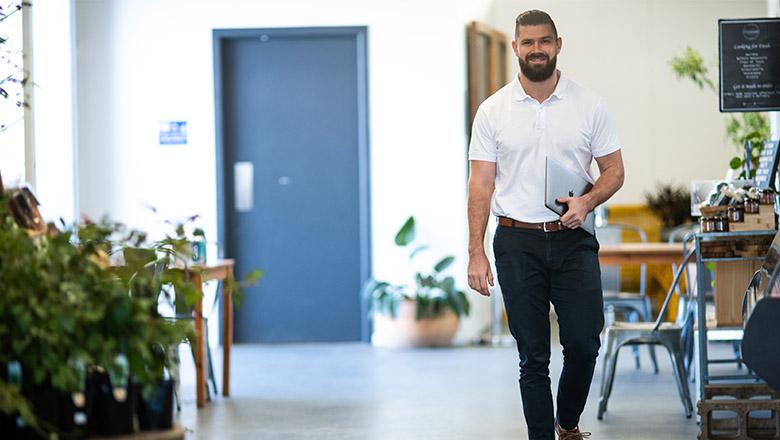
This phenomenon has allowed unverified and unhealthy “health” trends to circulate more rapidly and widely than ever before. In previous decades, you had to seek out bad dieting advice in trashy magazines. Now, it’s served up on a plate via your newsfeed.
“People’s belief that whole food groups need to be eliminated to achieve optimal health is particularly frightening,” says Jonathan.
“Social media is rife with misinformation, and it’s all too common to come across people who have restricted or eliminated foods they love just because a charismatic social media influencer encouraged them to."
“Unless there are medical, religious or ethical requirements, all foods and food groups can and should be included as part of a healthy diet.”
Social media and mental health: enemies or frenemies?
Social media’s impact on our health isn’t always as direct as changing our diet or exercise regime based on an influencer’s recommendations.
All that scrolling and subconscious comparing can gradually wreak havoc on your mental health too – especially if you don’t actively manage your newsfeed.
“It’s easy to forget that what we see on social media is perfectly curated and edited and is in no way reflective of real life,” says Jonathan.
“Although I think most of us know this intellectually, constant exposure to that sort of content can’t help but take its toll."
“Comparison is the thief of joy, and social media can take that to the extreme.”
But to switch off social media would be a shame when it has such potential for good. And most of us are too far gone to even consider separating ourselves from our online accounts anyway.
“One thing I commonly remind my clients is that they have a huge amount of control over what they view on social media,” says Jonathan.
“I encourage people to take control over their social media and ensure they’re removing any accounts they feel negatively impact their physical or mental health, and instead look to fill their feed with positive, evidence-based, health-promoting accounts – oh, and puppies.”
“Social media can be an incredibly empowering, educational platform if used effectively."
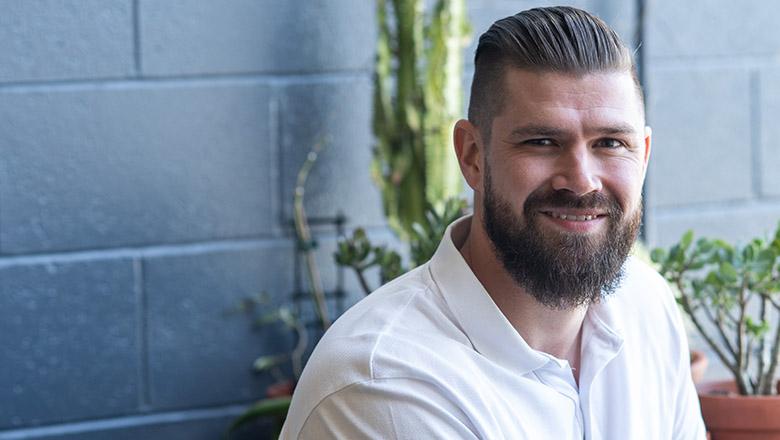
What does it mean to be healthy in today’s world?
Dropping a specific number of kilos or fitting into a smaller size of pants is great, particularly if that tangible goal motivates you, but this doesn’t define your health and wellbeing. Jonathan advocates for a more holistic and flexible approach.
“Weight loss is one of the most common health goals my clients have,” he says.
“Unfortunately, this often results in them fixating on a specific target weight or body fat percentage, instead of a focus on the habits and behaviours that are going to get them there.”
Rather than letting arbitrary calculations dictate whether you’re achieving your health goals, Jonathan recommends ticking off positive daily habits until they’re instilled in your routine.
Back to basics
If you meet these three core health goals, you’re already well on your way:
- Eat a vegetable and/or fruit with every meal.
- Drink enough water to have clear or light-yellow urine.
- Aim to do some form of movement every day. Remember that healthy movement doesn’t have to mean lifting weights or resistance training. Walking, social sports, swimming, martial arts and yoga are all great options. Even taking the stairs instead of the elevator or scheduling regular stretch breaks at your desk can make a difference.
“If you focus on the behaviours, the results will come.”
Jonathan's journey
Becoming a dietitian made sense for Jonathan from the get-go. It was the perfect way to combine his twin loves of food and science.
“Sharing this love of food with others is one of my main drives,” he says.
“I’m now professionally obligated to talk about food all day, every day, which is fine by me.”
Now accredited as a practising dietitian through the Master of Dietetics Studies, Jonathan also sees his mission as:
- cutting through the noise and removing the fear and misinformation around food
- helping people realise that all food fits – and quality nutrition doesn’t mean living solely on salads.
“The Master of Dietetics Studies helped me develop my ability to critically evaluate, understand and apply research,” says Jonathan.
“Like most fields of health, the amount of ever-changing and often contradictory information can be overwhelming, so the ability to read, synthesise and communicate in a way that’s accurate yet simple enough for the general public to understand is critical.”
And that’s why when Jonathan says you can treat yourself to the foods you love (within moderation), you can take that as the guidance of an expert.
“Eat the cake. Maybe not every day. Maybe not the whole cake. But eat the cake.”
Discover UQ's Master of Dietetics Studies Explore all of UQ's postgraduate study options

